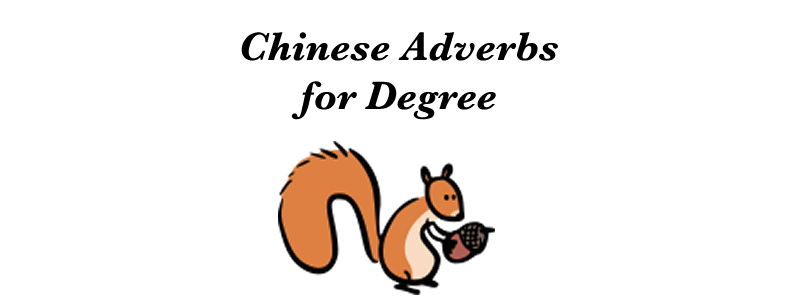Grammar Point:
过于 guòyú, 稍微 shāowēi, and 尤其 yóuqí are three adverbs that express degree in Chinese. They help convey different levels of intensity, slight changes, and emphasis in a sentence.
- 过于 guòyú means “excessively” and is used when something goes beyond an acceptable level.
- 稍微 shāowēi means “slightly” and is used to tone down the intensity of an action or description.
- 尤其 yóuqí means “especially” and highlights a specific aspect or example from a general statement.
Structure
过于 guòyú / 稍微 shāowēi + V or Adj
稍微 shāowēi can be used with a verb with or without 一下 yíxià or 一点 yìdiǎn. However, adding 一下 yíxià or 一点 yìdiǎn makes the action sound softer and more polite, which is common in spoken Chinese.
這個問題過於複雜,我們需要更多時間討論这个问题过于复杂,我们需要更多时间讨论
This problem is too complicated; we need more time to discuss it.
他過於自信,結果犯了很多錯誤他过于自信,结果犯了很多错误
He was overly confident and ended up making many mistakes.
這件衣服過於緊了,你換大一號吧这件衣服过于紧了,你换大一号吧
This piece of clothing is too tight; you should change to a bigger size.
你能稍微等一下嗎?你能稍微等一下吗?
Can you wait a little bit?
今天稍微冷了一點,記得穿外套今天稍微冷了一点,记得穿外套
It’s a little cold today; remember to wear a coat.
我們可以稍微休息一下再出發我们可以稍微休息一下再出发
We can take a short break before heading out.
稍微休息就可以繼續工作了稍微休息就可以继续工作了
A short break is enough to continue working.
General statement, 尤其 yóuqí + specific example
這家餐廳的菜都很好吃,尤其是北京烤鴨这家餐厅的菜都很好吃,尤其是北京烤鸭
The dishes at this restaurant are all delicious, especially the Peking duck.
他對中國文化很感興趣,尤其喜歡中國歷史他对中国文化很感兴趣,尤其喜欢中国历史
He is very interested in Chinese culture, especially Chinese history.
這座城市的風景很美,尤其是秋天的時候这座城市的风景很美,尤其是秋天的时候
This city has beautiful scenery, especially in autumn.
這部電影很好看,尤其是結局,讓人印象深刻这部电影很好看,尤其是结局,让人印象深刻
This movie is really good, especially the ending, which is very impressive.
學中文的時候,有沒有老師幫助差很多,尤其針對初學者学中文的时候,有没有老师帮助差很多,尤其针对初学者
Having or not having a teacher makes a big difference when learning Chinese, especially for beginners.


